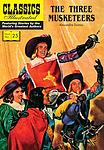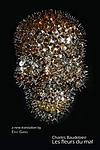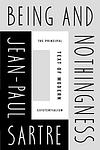The Greatest French "Paris" Books of All Time
Click to learn how this list is calculated.
This list represents a comprehensive and trusted collection of the greatest books. Developed through a specialized algorithm, it brings together 300 'best of' book lists to form a definitive guide to the world's most acclaimed books. For those interested in how these books are chosen, additional details can be found on the rankings page.
Genres
The "Paris" category of books typically refers to literature that is set in or inspired by the city of Paris, France. These books often explore the city's rich history, culture, and landmarks, as well as the experiences of its inhabitants. The genre may include fiction, non-fiction, memoirs, and travelogues, and may cover a range of topics such as art, food, fashion, and romance. Overall, the "Paris" category offers readers a glimpse into the enchanting and iconic city that has captivated generations of writers and artists.
Countries
Date Range
Reading Statistics
Click the button below to see how many of these books you've read!
Download
If you're interested in downloading this list as a CSV file for use in a spreadsheet application, you can easily do so by clicking the button below. Please note that to ensure a manageable file size and faster download, the CSV will include details for only the first 500 books.
Download-
1. In Search of Lost Time by Marcel Proust
This renowned novel is a sweeping exploration of memory, love, art, and the passage of time, told through the narrator's recollections of his childhood and experiences into adulthood in the late 19th and early 20th century aristocratic France. The narrative is notable for its lengthy and intricate involuntary memory episodes, the most famous being the "madeleine episode". It explores the themes of time, space and memory, but also raises questions about the nature of art and literature, and the complex relationships between love, sexuality, and possession.
-
2. Madame Bovary by Gustave Flaubert
Madame Bovary is a tragic novel about a young woman, Emma Bovary, who is married to a dull, but kind-hearted doctor. Dissatisfied with her life, she embarks on a series of extramarital affairs and indulges in a luxurious lifestyle in an attempt to escape the banalities and emptiness of provincial life. Her desire for passion and excitement leads her down a path of financial ruin and despair, ultimately resulting in a tragic end.
-
3. Les Misérables by Victor Hugo
Set in early 19th-century France, the narrative follows the lives and interactions of several characters, particularly the struggles of ex-convict Jean Valjean and his journey towards redemption. The story touches upon the nature of law and grace, and elaborates upon the history of France, architecture of Paris, politics, moral philosophy, antimonarchism, justice, religion, and the types and nature of romantic and familial love. It is known for its vivid and relatable characters, and its exploration of societal and moral issues.
-
4. The Red and the Black by Stendhal
The novel is a detailed psychological portrait of Julien Sorel, a young man from a provincial background who aspires to rise above his humble beginnings. He uses his intelligence and hypocrisy to advance in the post-Napoleonic French society, which is deeply divided by class and political loyalties. The story is a critique of the society's materialism and hypocrisy as Julien's ambitions lead him to a tragic end. The title refers to the contrasting uniforms of the army and the church, the two routes available to him for upward mobility.
-
5. The Count of Monte Cristo by Alexandre Dumas
A young sailor, unjustly accused of treason, is imprisoned without trial in a grim fortress. After a daring escape, he uncovers a hidden treasure and transforms himself into the mysterious and wealthy Count of Monte Cristo. He then sets out to exact revenge on those who wronged him, using his newfound power and influence. Throughout his journey, he grapples with questions about justice, vengeance, and whether ultimate power can ultimately corrupt.
-
6. Journey to the End of The Night by Louis-Ferdinand Céline
The novel is a semi-autobiographical work that explores the harsh realities of life through the cynical and disillusioned eyes of the protagonist. The narrative follows his experiences from the trenches of World War I, through the African jungles, to the streets of America and the slums of Paris, showcasing the horrors of war, colonialism, and the dark side of human nature. The protagonist's journey is marked by his struggle with despair, loneliness, and the absurdity of existence, offering a bleak yet profound commentary on the human condition.
-
7. The Three Musketeers by Alexandre Dumas
Set in 17th century France, the novel follows the adventures of a young man who leaves home to join the Musketeers of the Guard. He befriends three of the most daring musketeers, Athos, Porthos, and Aramis, and together, they navigate political intrigue, love affairs, and duels. Their main enemies are the powerful Cardinal Richelieu and the beautiful but treacherous Milady, who will stop at nothing to bring them down.
-
8. Father Goriot by Honoré de Balzac
"Father Goriot" is a classic French novel that explores the themes of wealth, power, love, and social status in 19th century Paris. The narrative follows the lives of three main characters: a young, ambitious law student who seeks to rise above his modest background; an elderly, once-wealthy man who has sacrificed everything for his two ungrateful daughters; and a crafty, ruthless criminal who manipulates others for his own gain. Their stories intertwine in a boarding house, revealing the harsh realities of Parisian society and the destructive power of unchecked ambition and selfishness.
-
9. The Counterfeiters by André Gide
"The Counterfeiters" is a complex novel that explores themes of authenticity, morality, and identity, primarily through the lens of a group of friends in Paris. The story revolves around a series of counterfeit coins, which serve as a metaphor for the characters' struggles with their own authenticity and self-perception. The narrative also delves into the lives of the characters, their relationships, personal struggles, and their journey towards self-discovery. The book is noted for its non-linear structure and metafictional elements, with the author himself being a character in the story.
-
10. A Sentimental Education by Gustave Flaubert
A Sentimental Education is a classic French novel set in the mid-19th century, focusing on the life of a young man named Frederic Moreau. Frederic, from a provincial background, moves to Paris and becomes infatuated with an older woman, Madame Arnoux. The novel traces Frederic's life and romantic pursuits, as well as his friendships and experiences in Paris, against the backdrop of significant historical events like the 1848 Revolution. The story is a critique of the French middle class and their materialistic values, illustrating the disillusionment and moral corruption of the time.
-
11. The Flowers of Evil by Charles Baudelaire
"The Flowers of Evil" is a collection of poems that explore themes of decadence and eroticism, and the changing nature of beauty in the rapidly industrializing Paris during the 19th century. The work is renowned for its exploration of the paradoxes of pleasure and pain, the exotic and the commonplace, and the boundaries of morality and aesthetics. The poems challenge traditional notions of good and evil, suggesting that beauty can be found in unexpected and even disturbing places.
-
12. The Confessions of Jean-Jacques Rousseau by Jean-Jacques Rousseau
"The Confessions of Jean-Jacques Rousseau" is an autobiographical work by a prominent philosopher of the Enlightenment era, who candidly shares his life story, from his humble beginnings in Geneva to his later years in exile. The book delves into his personal struggles, his intellectual journey, and his relationships, all while exploring his philosophical ideas on education, politics, and morality. The author's introspective narrative provides a unique perspective on his life and times, making it a seminal work in the history of autobiography.
-
13. Pensées by Blaise Pascal
"Pensées" is a collection of philosophical and theological thoughts and ideas by a renowned French mathematician and physicist. The book delves into various aspects of human existence, exploring the nature of faith, reason, and the human condition. It also presents arguments for the existence of God, including the famous wager argument. The book is known for its profound insights into the human experience and its exploration of the complexities of belief and doubt.
-
14. The Princess of Cleves by Madame de La Fayette
Set in the royal court of Henry II of France, the novel follows the life of a beautiful young woman, newly presented at court, who attracts the attention of many suitors, including the King's son. However, she is married off to a man she does not love, the Prince of Cleves. Despite her loyalty to her husband, she falls in love with the Duke of Nemours. The novel explores themes of duty, honor, and the conflict between passion and reason as the protagonist struggles with her feelings and the moral implications of her love for the Duke.
-
15. The Hunchback of Notre-Dame by Victor Hugo
Set in 15th-century Paris, this novel follows the story of Quasimodo, a deformed and hunchbacked bell-ringer of Notre-Dame Cathedral, who is shunned due to his appearance. Despite his physical deformities, Quasimodo falls in love with the beautiful gypsy girl, Esmeralda. However, his love is unrequited as she is in love with a handsome soldier. The novel explores themes of love, rejection, and the human struggle against fate and societal norms.
-
16. Life, a User's Manual by Georges Perec
The novel explores the lives of the inhabitants of a Parisian apartment block through a complex, multi-layered narrative. It delves into the interconnected stories of the building's residents, revealing their secrets, desires, and disappointments. The narrative is structured like a puzzle, with the author employing a variety of literary styles and devices, making it a complex and intriguing exploration of human life.
-
17. Cousin Bette by Honoré de Balzac
"Cousin Bette" is a novel set in mid-19th century Paris, focusing on the lives of the Hulot family and their cousin, Bette, an old maid who harbors a deep resentment towards her relatives due to their wealth and social status. When Bette learns that her cousin's husband is having an affair, she decides to exact revenge by manipulating various characters and situations, leading to the downfall of the Hulot family. The novel explores themes of jealousy, revenge, and the destructive power of repressed feelings.
-
18. Cyrano de Bergerac by Edmond Rostand
"Cyrano de Bergerac" is a classic French play that tells the story of a nobleman named Cyrano, who is a talented poet and swordsman but has a very large nose. Despite being deeply in love with his cousin Roxane, Cyrano doesn't believe she could ever love him because of his appearance, so he helps his friend Christian woo her instead. Cyrano writes love letters to Roxane on behalf of Christian, and Roxane falls in love with the man she believes Christian to be. The story is a tragic tale of unrequited love, selflessness, and the power of inner beauty.
-
19. The Mandarins by Simone de Beauvoir
"The Mandarins" is a novel that explores the personal and political lives of a group of intellectuals in post-World War II France. The narrative delves into their struggles with ethical dilemmas, political ideologies, and personal relationships in a rapidly changing world. The book is known for its exploration of existentialism and feminism, providing a vivid portrayal of the human condition and the complexities of freedom.
-
20. Lost Illusions by Honoré de Balzac
"Lost Illusions" is a sweeping narrative that focuses on the life of a young, ambitious poet from the provinces who moves to Paris in hopes of making a name for himself. Over time, he becomes disillusioned with the corruption and moral decay of the city's literary and high society circles. The protagonist's journey is marked by his struggle to maintain his integrity and idealism in a world dominated by materialism and selfish interests. The novel is a critical commentary on the destructive power of unchecked ambition and the pitfalls of vanity.
-
21. Being and Nothingness by Jean Paul Sartre
This philosophical work delves into the concept of existentialism and phenomenology, offering an in-depth analysis of human consciousness and existence. The author argues that we are all essentially free and responsible for our actions, and that we construct our own identities through our actions and interactions with others. The book also explores the idea of 'nothingness' and 'bad faith', suggesting that we often deny our freedom and hide from the responsibility of our actions, leading to a life of inauthenticity.
-
22. Thérèse Raquin by Émile Zola
"Thérèse Raquin" is a novel about a young woman who is unhappily married to her cousin, a sickly and selfish man. She embarks on a passionate and destructive affair with one of her husband's friends, leading to a series of tragic events. The novel explores themes of lust, guilt, and the psychological consequences of such immoral actions, set against the bleak backdrop of the Parisian underworld.
-
23. Against Nature by J. K. Huysmans
The novel follows the life of an eccentric aristocrat who retreats from society to live in isolation, dedicating himself to the pursuit of excessive aestheticism. He surrounds himself with art, literature, and music, and indulges in sensual pleasures and extravagant interior decoration. The protagonist's obsession with artifice over nature and his quest for absolute individualism and self-gratification are explored, reflecting the decadent movement of the late 19th-century France.
-
24. Zazie in the Metro by Raymond Queneau
A young, precocious girl named Zazie comes to Paris to stay with her flamboyant uncle, a professional female impersonator. She is obsessed with riding the Metro, but a strike thwarts her plans. As she explores the city on her own, she encounters a variety of eccentric characters, gets into mischief, and ultimately causes chaos in the city. The novel is a humorous and satirical look at Parisian life, filled with word play and surreal elements.
-
25. Nadja by André Breton
The novel is a surrealistic exploration of the narrator's relationship with a young woman named Nadja. As the narrator becomes infatuated with Nadja, their encounters become more and more dreamlike. The book delves into the nature of reality and the power of the subconscious mind, blurring the lines between dreams and reality. It is also a commentary on the socio-political climate of Paris in the early 20th century, showcasing the author's views on art, life, and love.
Reading Statistics
Click the button below to see how many of these books you've read!
Download
If you're interested in downloading this list as a CSV file for use in a spreadsheet application, you can easily do so by clicking the button below. Please note that to ensure a manageable file size and faster download, the CSV will include details for only the first 500 books.
Download























